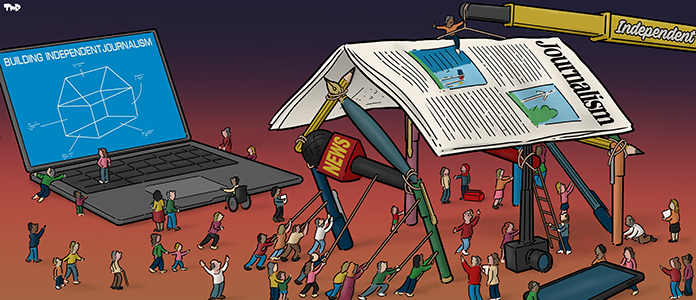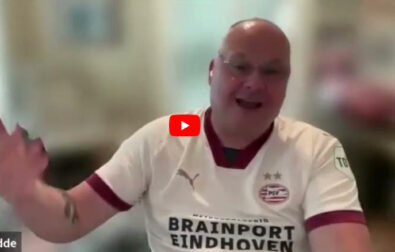Susana del Río Villar
In “European integral communication (I)” I wondered: What do I understand by integral communication? And I answered: Integral communication is another way to communicate. In recent years we have noticed and “practiced” that communication is much more than information. We know that from long time ago but let’s take a step towards the European integral communication, an integral and integrating communication which adds people, fields, possibilities and opportunities. The integral communication is at the same time proactive and receptive so that it accepts many designs, models, people and entities. If we communicate spaces we cannot forget that we connect people and society is communication.
It is true we have taken some steps forward and leaps in European communication: from a European debate model to a communication model and now we are consolidating a European communication policy. We are on that. Some ideas:
Turning the European “mode” on
To turn this mode on, a European register in citizens’ mind or perhaps a European illusion spark, and surprise with what the European Union is and what it means, communicating for the sake of communicating is not valid. We have to connect with realistic messages, which are valuable and can be perceived as current through a transmission, with content. Which are the strength vectors of that communication?: Communicating in “European version” if we are communicating Europe; motivating the curiosity about Europe, informing that Europe is in our daily life and people see and know that “the European thing” are all of us and we all have our rights as well as our duties as European citizens. If citizens have at our disposal many communication resources which are more and more accessible so we also have to start talking about the responsibility of getting information. I want to highlight that we also participate looking for information because searching and exploring are other ways to participate.
Another important issue to highlight is solidarity as a big catalyzer of citizen mobilization. This year is the European year of volunteering. Solidarity can move mountains, sensitivities, emotions and it activates us. That is important but it is also worth to say that NGOs capacity for multiplying information is very big.
In relation to the fact that humanity and solidarity really move people and in terms of European integral communication, I also understand that information must be well written, taking care over the ethics and the esthetics of communication. The new communication must be humanized. People perceive what is well done, with a good transmission as well as a projection thought for values and from whichever perspective. However, an integral communication implies a coherent, kind and well structured discipline. Because everything is not valid and the participative answer will depend on what and how we communicate.
Communicating on-line with “a little” order: Who is communicating what?
Too much information and too many channels? The communicative spiral has been developing at a frantic pace in recent years and having a look at the Net induces sometimes to dizziness. Interactivity is sometimes carried out in a chaotic and thoughtless way. The rush and freshness which are inherent to the experience of communicating are valuable but it is important to combine this spirit with a good communicative articulation in an ordered way, with flexible and quick, but measured, dialogues and debates. It is important to provide the backbone of the communication so that as we take a look at the Net we are surprised by the big informative and interactive volume and we want to see what it is about and who communicates what.
¿Te está interesando el artículo?
Es de libre acceso gracias al apoyo de nuestra comunidad. Publicar y traducir nuestros artículos tiene un precio. Para seguir informándote de manera totalmente independiente, necesitamos tu apoyo.
Leaps from and into spaces are interesting for communication-participation but we always should have in mind that e-participation, e-communication, e-democracy, e-governance, e-media and active citizenship (I prefer the term networked citizenship to digital citizenship), are: Participation, Communication, Democracy, Governance, Media and Citizens. Communication is made by people.
As I wrote some months ago in the first part of this article, an integral communication combines the traditional communicative action, from example written press, with activism, on-line communication, because it is different to be on the Net that to be on-line (“on Net”). An integral communication adds.
European actions which add communications
Today I highlight three projects in order to “reactivate the European citizenship through the communication of Europe”.
Europeando, which these days celebrates one year of on-line debate and interactivity.
The meeting The European Parliament and social networks held in Córdoba. The initiative taken by the Office of the European Parliament in Spain doesn’t need any description if we see the video recorded by the EP (here with subtitles in English) and observe the spreading carried out by the participants in their blogsand web sites such as Europa451.es.
The project shows in its different phases (preparation, meeting and spreading) the rich complementarity of the contributions making visible and tangible the potential of the joint debate between the European Parliament, the authors of the blogs about Europe, the MEPs and the people who believe in the work of communicating Europe daily. The important fact is the ability to add communications, models, fields and people because as Exupery writes in The little prince, the solution is the process itself.
Butterfly Europe: from this model for communicative action I highlight the communicative dynamism with Internet, the dialogue and the visibility of the great European politics.
In conclusion:
The value of silence in communication, is it a paradox?
Silences in communication also say things. Something that has not been said on the Net may be there and it is important to find it. We have to explore the “hot” spaces of communication observing the “quiet” places of information, what have not been said on paper or “screen” yet, may be the big news of tomorrow.
Dr. Susana del Río Villar is Member of Experts Committee of the European Commission in Citizens and governance in the knowledge based society, "Democracy in a supranational context". Investigadora- Directora académica para el programa Europa del Instituto de Gobernanza Democrática.
Has podido acceder a todo el artículo.
¿Quieres apoyar nuestro trabajo? Voxeurop depende de las suscripciones y donaciones de sus lectores/as.
Descubre nuestras ofertas y ventajas solo para suscriptores/as a partir de 6 € al mes.
Suscribirse
O haz una donación para fortalecer nuestra independencia.
Hacer una donación












